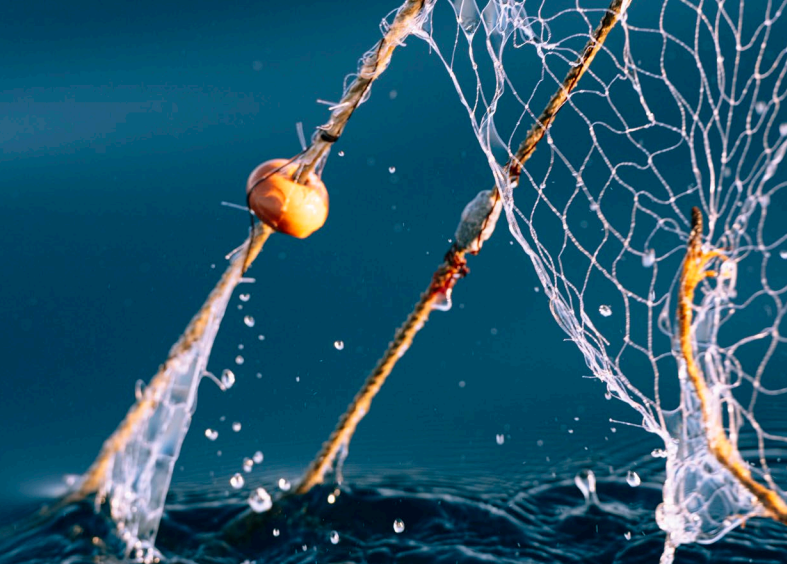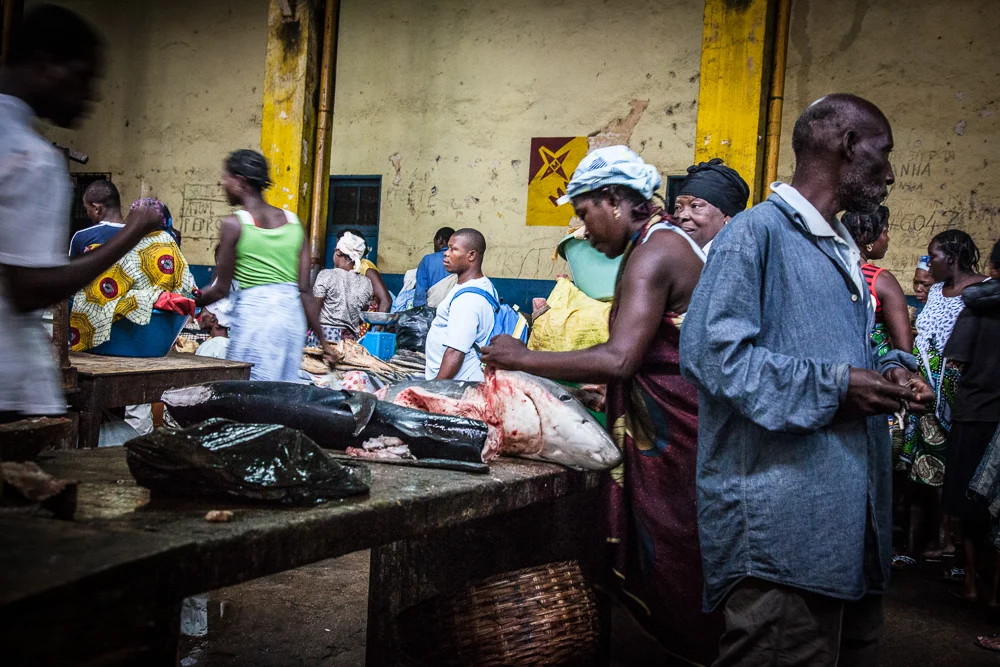With an EU-Mauritius SFPA Joint Committee planned this spring, and the SFPA protocol expiring in December 2021, CFFA highlights issues for the negotiations of the fisheries partnership agreement renewal.
African artisanal fisheries at the forefront of the fight against predatory and opaque industrial fishing companies
What future for Sustainable Fisheries Partnership Agreements?
In view of the global evaluation of the Sustainable Fisheries Partnership Agreements (SFPAs) that will be carried out by the Commission in 2021, the author highlights the key points which will need to be assessed from the perspective of the impacts on African coastal communities. The author also suggests essential improvements to be made for the future of SFPAs so that they better respond to the needs of these communities.
Improving scientific observer coverage in mixed Fisheries Agreements in West Africa
BirdLife Europe and Central Asia, CFFA and WWF release a joint paper with recommendations to harmonize the conditions for the embarkment of scientific observers on board EU vessels and ask that data collection include more specifications on the biological information required, including information on bycatch species.
World Fisheries Day: How the EU can support sustainable African artisanal fisheries
In this declaration on the occasion of World Fisheries Day, CFFA calls on the European Union to integrate the FAO Guidelines for Securing Sustainable Small-scale fisheries into all its policies that have an impact on this sector, particularly in the Blue Economy and Farm to Fork strategies and in its external action.
Small scale fisheries at risk: Madagascar signs destructive fishing agreements with Chinese investors
Sustainable Fisheries Partnership Agreement negotiations between the EU and Mauritania: staying on course
As a new round of negotiations between the EU and Mauritania is expected to start soon, this position paper recalls the demands of the Mauritanian artisanal fisheries sector, highlighting technical conditions, such as the access to octopus to be reserved for local artisanal fishers, the zoning for trawlers to be maintained, and landings of small pelagics to be kept. Governance issues are also key, such as transparency, especially regarding the activities of other foreign fleets; and the urgent need for the SFPA to contribute to regional management for shared stocks.
Making Sustainable Fisheries Partnership Agreements’ evaluations more efficient
BirdLife Europe and Central Asia, CFFA and WWF publish a joint paper with recommendations to improve the process and the content of evaluations by including the assessment of impacts of the EU fleet on ecosystems, of the transparency and non-discrimination clause, the needs of women, the implementation of the social clause and the contribution to SDGs.
Towards greater coherence and budgetary efficiency in future EU sustainable fisheries partnerships
This concept note is part of CFFA's long-term reflection and consultation on the future of the European Union's Sustainable Fisheries Partnership Agreements (SFPAs). We develop some avenues for making SFPAs more effective and sustainable, through a holistic and concerted approach, a financial rebalancing and the implementation of rigorous budgetary tools combined with capacity building.
Issues for local artisanal communities in a potential future EU-Guinea SFPA
How large is the Chinese Distant Water Fishing fleet?
The latest ODI report presents the scale of the Chinese flagged, owned and/or operated DWF fleet and highlights the gaps and challenges in China’s governance capacity, but the methodology and the figures need to be taken with a pinch of salt. Using specific examples, CFFA reviews the key findings and implications for the West Africa region.
EU-Liberia SFPA: what should a potential future protocol look like?
10 priorities for the future of Sustainable Fisheries Partnership Agreements
CFFA and six other European and African organisations and their networks publish a joint paper with recommendations to improve the sustainability of EU-African fishing arrangements, including transparency, compliance with European obligations, increased scientific knowledge and the rethinking of the financial support objectives.
Fisheries in Africa: Exclusive Economic Zones for which purpose?
This policy brief by Michel Morin analyses the paradox between the rights that African coastal States have over their EEZs according to UNCLOS and the low benefit they derive from them for their populations, particularly for food security and employment. The article shows that there is a structural weakness in the market of fishing rights which is explained by corruption and lack of transparency, and it concludes by the need for a change of governance in the management of African fisheries.
Financial compensation, support for development and transparency, the key issues at stake in the negotiation of the EU-Madagascar SFPA
The Government of Madagascar has made it clear that it expects to derive greater benefits from its tuna resources through higher financial compensation. If this compensation is coupled with well-directed sectoral support for local fisheries, this could help develop Madagascar's small-scale fishing sector, which provides thousands of jobs and is essential for food security.
Local fisheries stakeholders react to the new EU-Seychelles SFPA and protocol
Contributing to the promotion of the women in fisheries livelihoods through SFPAs between EU and African countries
CFFA and partners sign on to the Blue Manifesto to encourage the EU to become a global leader for healthy oceans
Are the EU’s fisheries agreements helping to develop African fisheries?
A significant proportion of EU funds used for Sustainable Fisheries Partnership Agreements is earmarked for sectoral support - helping to develop sustainable fisheries in partner countries. However, analysis on the effectiveness of this sectoral support suggest considerable improvements are needed. Here we review the problems and offer our ideas on how the EU can make things better.
Issues of the new EU-Mauritania fishing agreement protocol: small pelagics, bycatch and sectoral support
On March 22d, the European Parliament Fisheries Committee discussed the new EU-Mauritania fishing agreement protocol. Most parliamentarians, like the rapporteur, Mr Mato, see positively the protocol proposed. However, the issue of the absence of a regional framework for the sustainable management of small pelagics was raised by Mrs Rodust, who insisted the EU should promote such regional management.
CFFA fully shares this point of view. With regard to access to small pelagic through the Mauritania – EU SFPA, our greatest concern in terms of sustainability remains the fact that access is allocated to foreign fleets, including those of the EU and Russia, in the absence of a necessary regional management framework for these species, shared between, mainly, Morocco, Mauritania and Senegal. How is it possible to determine a surplus in the absence of such regional management?
The SRFC Convention on the Minimum Access Conditions (CMA), ratified by SRFC Member States, including Mauritania, call for a concerted management of small pelagic species in the region, and this call has been also made by local fishing communities, given the strategic importance of these resources for the food security of the entire region. This is a matter of urgency, given the state of full exploitation, or even over-exploitation of the round sardinella.
We therefore request the EU to make all possible efforts to promote such regional management, including through its SFPA dialogue with the concerned countries: Mauritania, Morocco, Senegal.
CFFA has additional comments about the EU-Mauritania new proposed protocol, concerning :
Mauritania commitment to Transparency
The Article 1 of the new Protocol stipulates that Mauritania undertakes to make public any public or private agreement allowing access to its EEZ by foreign vessels. This is an important positive step, which is rightly reflected by the rapporteur, Mr Mato. We hope that Mauritania will soon publish all these agreements, as it is for us a fundamental part of the implementation of the agreement, which will be examined at the occasion the first SFPA Joint Committee meeting, which will meet probably in May 2016.
Access to resources: by-catches of octopus and small pelagics
The state of the octopus resources in Mauritania remains a concern. The 2015-2019 Mauritania fisheries sector development strategy document insists on the fact that 'despite a recovery observed recently, the state of octopus stock is still a concern with overexploitation levels estimated to be at 17%’. In this context, it is to be welcome that there is no direct access for European fleets to this overexploited resource, which is key for the local artisanal sector.
However, if there is no access to the octopus as a target species through the SFPA, octopus remains one of species caught as bycatch: European shrimp trawlers may retain on board 8% of catches of cephalopods, composed mainly of octopus.
The rapporteur also underlines that Mauritania had undertaken to consider, during the first Joint Committee meeting, the possible allocation of new fishing opportunities for demersal freezer trawlers, which would then also include by-catches of octopus.
We feel that the impact of octopus by catches combined volumes on the state of the stock must be taken into account, and no further access should be given that would have a detrimental impact on the state of non-targeted resources, particularly the over exploited octopus.
The problem of bycatch is also present in the small pelagic fishery. For pelagic super trawlers, the joint Scientific Committee in 2013 made the hypothesis that there was possible under-reporting of by-catches, 'taking into account the practice of pelagic trawling which in general has a high bycatch rate with an important diversity of species caught as by-catch (over 100 species)'. The recent Maritime Atlas of vulnerable sea areas in Mauritania, published by the Mauritanian Institute of oceanographic research and fisheries (IMROP) states that, for the small pelagic fishery, 'while catches of the target species are well-regulated, the bycatch is a major problem’.
Efforts of selectivity are therefore needed to reduce by-catch of pelagic super trawlers, including by introducing, through the implementation of the 2015-2019 SFPA, the use of selectivity devices.
Sectoral support
During the last protocols, the sectoral support substantially decreased, from 16 million euros per year (2008-2012) to 3 million per year (2012-2014). It will be 4 million euros per year in the new protocol 2015-2019. So far, the use of sectoral support is very unsatisfactory for both parties: the funds were mainly used to cover running costs, rather than infrastructure, essential for the development of the sector. The question of transparency regarding the use of this sectoral support was also raised many times in the past.
To address these deficiencies, it is expected in the new protocol that sectoral support will be handled by an ‘execution cell’ that will coordinate the implementation with the beneficiaries of the selected projects. A report at the end of project will be published, which will consider the impact on resources, employment, investments. An annual workshop with beneficiaries will be held to present progress.
The rapid implementation of this transparent and participative approach should be encouraged, to improve the use of sectoral support funds to the benefits of Mauritanian sustainable fisheries development.



















